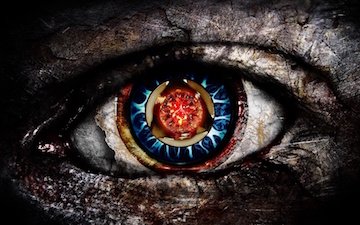
There are three elements to addiction; the life you lead, the pain it causes, and the drug to hold you up. In the early stages of addiction you are neither aware of the pain, nor the lifestyle that’s causing it. For this time period, the opiates will continue to dominate your life until the true pain point is identified. In regard to the life you lead, this can include your environment, upbringing, beliefs, family, friends, and everything in-between.
Over time the opiates will begin to lose their effectiveness, leaving an addict with two choices; increase the experience, or identify the purpose it serves. This is where age and maturity tends to come into play, as many at a young age do not want to explore their lives in such a way. Exploration for the youth rather comes in the form of experimentation, which can lead to deeper holes, further lessening one’s awareness and ability to recover.
For those that do choose to explore the causes of their addiction, this can be done through forms of therapy or group work, practical or spiritual. Anything that forces you to take a step outside of yourself and look inwards, will result in some form of a behavioral change. Identifying the purpose however can take time, and should be viewed as a layered process rather than one single moment or discovery. For many there are significant “shifting” moments of realization, that in essence change the course or direction of a life. As humans, sometimes all we need is an adjustment of our perceptional lens, allowing us to envision a new and improved version of ourselves. From this point we begin to make decisions that support new patterns of living. As those new patterns are formed, so are new emotions that do not require the support of opiates or drug use.
Years ago my brother asked that I participate in a large group awareness and self-improvement training. Looking back on the experience, it was more an interactive group therapy session with intense exploration of your past. Part of the intense exploration included a dive into your childhood, with the theory that one or two experiences in-particular had a direct impact on your strengths and weaknesses. The weakness or limiting pattern of behavior is then targeted with the intent to be broken down, re-invented, and replaced with a new one. As the new belief or outlook is formed as a verbal statement or series of sentences, it is reinforced through application to real-life experiences.
After two days of contemplation, my memory finally served up a traumatic experience with my father at the age of 7. I recalled receiving my first report card, which included one poor grade on a particular area of development. My father (likely with good intentions), sat me down and began to crack my nose with his finger, all while communicating the bad things to come if I did not achieve good grades. From this point on, my outlook on life was one of “If you do not achieve X, it will result in Y”, rather than seeing all experiences as an opportunity to succeed and grow. Nevertheless, the past is not to be harped on, especially when you are presented with the opportunity to change such a pattern as an adult. Over the next several weeks and coming months, I was consciously able to recognize the old pattern and begin to form another. Years later, I can say with confidence both my outlook and emotions have changed for the better.
There will always be multiple attempts by an addict to stop using. True progress however starts with the acknowledgement that there was a reason it all began in the first place, and true change must come from the inside out. Those who make the attempt from from the outside in, are likely to find themselves in a pattern of relapse.
I upvoted your post.
Best regards,
@Council
Posted using https://Steeming.com condenser site.
thank you council, very much.